Processing Request...
Processing Request...
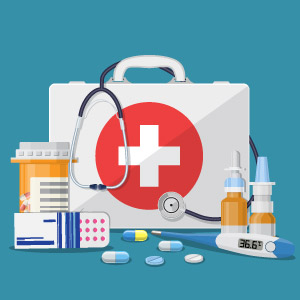
Medical science covers many subjects which try to explain how the human body works. Starting with basic biology it is generally divided into areas of specialization such as anatomy, physiology and pathology with some biochemistry, microbiology, molecular biology and genetics.
View Courses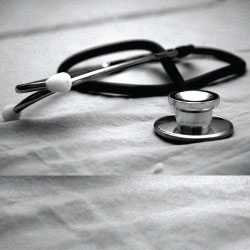
Provides medical students and medical graduates with an opportunity to gain an in-depth understanding of research in a variety of areas such as biomedical science, public health, clinical medicine and medical education. Students will be exposed to various technologies and research methodologies selected from a wide range of clinical and laboratory settings.
View Courses

Dentists diagnose and treat dental issues and help patients develop better oral hygiene regimens. They clean teeth, correct bite issues, perform surgeries and extractions, and perform other duties to ensure that the teeth and mouth are healthy.
View Courses
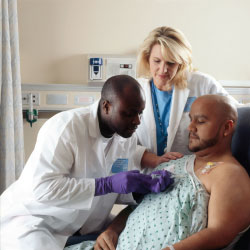
Medical assistant usually record the patients’ history and personal information, evaluate important details such as blood pressure, assist doctors with patients’ check-up, injections or medicine dispensary following doctors’ instructions according to the state law, scheduling doctor’s appointments with patients, passing the blood samples to labs and keeping inventory of patients’ medical history.
View Courses

Pharmacy is the health science that links medical science with chemistry and it is charged with the discovery, production, control, disposal, safe and effective use of drugs. The practice of pharmacy requires excellent knowledge of drugs, their mechanism of action, side effects, interactions, mobility and toxicity.
View Courses

Traditional Chinese medicine aims to restore the body’s balance and harmony between the natural opposing forces of yin and yang, which can block qi and cause disease. Traditional Chinese medicine includes acupuncture, diet, herbal therapy, meditation, physical exercise, and massage. Also called Oriental medicine and TCM.
View Courses
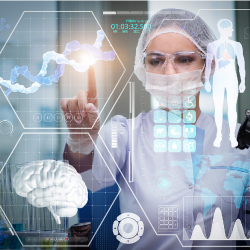
Health technology is defined by the World Health Organization as the "application of organized knowledge and skills in the form of devices, medicines, vaccines, procedures, and systems developed to solve a health problem and improve quality of lives". This includes pharmaceuticals, devices, procedures, and organizational systems used in the healthcare industry, as well as computer-supported information systems. In the United States, these technologies involve standardized physical objects, as well as traditional and designed social means and methods to treat or care for patients.
View Courses

Forensic scientists use analytical and scientific techniques to examine evidence from crimes and prepare legal statements that summarise the results for court cases.
View Courses
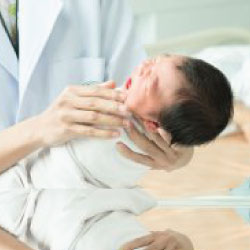
Pediatrics is the specialty of medical science concerned with the physical, mental, and social health of children from birth to young adulthood. Pediatric care encompasses a broad spectrum of health services ranging from preventive health care to the diagnosis and treatment of acute and chronic diseases.
View Courses
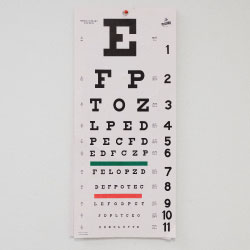
Optometrists assess patients' eyes to identify vision defects, diseases, and injuries. Their duties include maintaining medical files, evaluating eye defects, recording treatment plans, and performing eye inspections.
View Courses
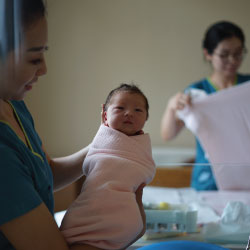
Midwives deliver babies and provide antenatal and postnatal advice, care and support to women, their babies, their partners and families. Midwives support women and their families through pregnancy and labour and in the time immediately after birth. They work in a range of settings, including hospitals, midwifery-led maternity units and expectant mothers' homes, and are part of a team of professional and medical staff that includes doctors, social workers, neonatal nurses and health visitors.
View Courses
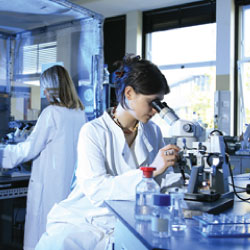
Biomedical scientists carry out experiments on samples of body fluids and tissue to help develop solutions to threatening diseases. Biomedical scientists are responsible for investigating and diagnosing patient illnesses such as HIV, cancer, diabetes, food poisoning, hepatitis and meningitis. Most work is laboratory-based.
View Courses

Dietitians promote good dietary health and treat nutritional problems by providing practical advice about food choices, based on scientific research. Dietitians work on a group and an individual basis with people of all ages. They work both with people who are sick and people who are well.
View Courses

Physiotherapists use a variety of techniques and therapies in the treatment and rehabilitation of patients who are affected by physical problems caused by illness, disability, injury or ageing. Physiotherapists work with a variety of patients including physically disabled children, women before and after giving birth, athletes, patients who are in hospital or attending clinics and people within the community.
View Courses
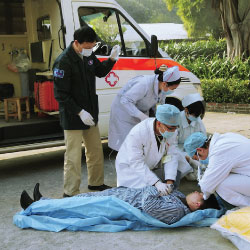
Paramedics provide specialist care and treatment to patients who have been involved in accidents, emergencies or other crises. A paramedic is usually the senior member of a two-person ambulance crew, supported by an emergency care assistant or technician. A paramedic is typically one of the first healthcare professionals to arrive at the scene of an emergency.
View Courses
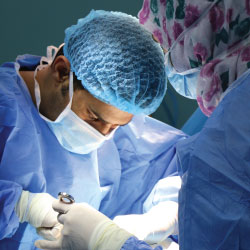
Medicine relates to diagnosing, treating and preventing a sickness, disease or injury. It involves utilising healthcare practices to maintain and restore the health and well being of a person.
View Courses


Take our free psychometry test to discover your passion and potential!
Try It Now!

Book a campus tour through us!
Book Now!

Submit your result to Edumetry, and a list of scholarship that is eligible for your result will be filtered out for you!
Match Now!